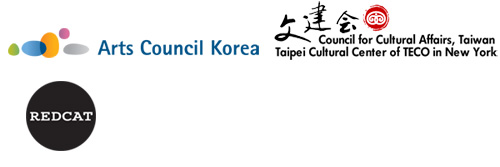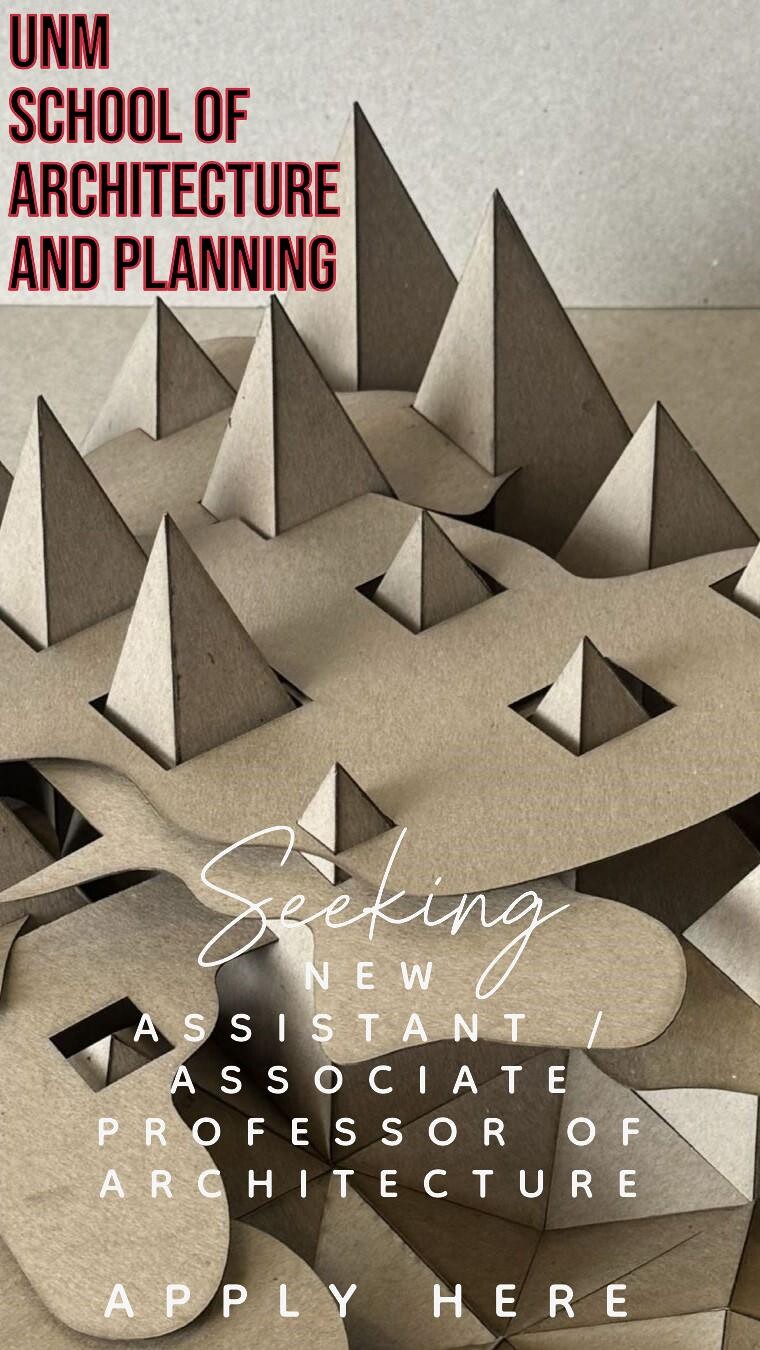Everyday Miracles (Extended)Everyday Miracles (Extended)
November 22, 2009 – January 17, 2010
Featuring Hamra Abbas, Ringo Bunoan, Chen Hui-Chiao, Shilpa Gupta, Kan Xuan, Minouk Lim and Jewyo Rhii
Opening reception: Saturday, November 21, 6-9 pm
Artists panel discussion:
November 21, 6:30 pm
Curated by Hou Hanru of San Francisco Art Institute in collaboration with Clara Kim of REDCAT in Los Angeles, the group exhibition Everyday Miracles (Extended) proceeds from the original project Everyday Miracles curated by Hou Hanru for the Chinese Pavilion in the 2007 Venice Biennale, which featured four women artists from different generations. Conceived in three cycles, Everyday Miracles (Extended) brings together Hamra Abbas, Ringo Bunoan, Chen Hui-Chiao, Shilpa Gupta, Kan Xuan, Minouk Lim and Jewyo Rhii, who will present work in two consecutive phases at the Walter and McBean Galleries at the San Francisco Art Institute before the final presentation of all seven artists together at the Gallery at REDCAT in Los Angeles. The exhibition seeks to expand upon dialogues on feminism, art practices in Asia and the emergence of the extraordinary in art and the everyday.
This first time collaboration between SFAI and REDCAT concretizes the two institutions shared interest in contemporary practices of the Pacific Rim and elaborates upon an ongoing dialogue between Hou and Kim. Born out of a desire for deeper investigation and inquiry, Everyday Miracles (Extended) reflects upon the dynamic shifts across Asia over the last 30 years. Both SFAI and REDCAT have been committed to articulating the historical, cultural and artistic relationship between the West Coast and the Asia Pacific region. This relationship has been important to forging new geo-political and social positions that play an increasingly important role in addressing globalization not as an abstract concept or process but rather as lived experience. The programs of both institutions privilege the engagement of challenging ideas, providing a platform for exchange between individuals and artists from different generations and different places.
Bringing together the work of these seven extraordinary artists, Everyday Miracles (Extended) seeks to incite dialogue about the cultural diversity and historical difference affected by histories of colonialism and modernization in China, India, Korea, Pakistan, the Philippines and Taiwan. Using the miraculous-ness of the everyday to negotiate political and historical reality, the exhibition asks: what kind of social vision for society in the future can be conceived? and what kinds of collectivism and commonality can be established? Recognizing the limitations of working through abstract discourses—feminist or otherwise—the artists implicitly express a desire to structurally and systematically reorient prevailing political and historical narratives. From diverse and individual perspectives, the artists use their own languages to articulate a need for alternative visions that counter the terms of modernization and globalization.
The artists featured in this three-cycle exhibition poignantly and powerfully reflect upon the vast economic and political changes that have affected many aspects of society. Hamra Abbas, Ringo Bunoan, Chen Hui-Chiao, Shilpa Gupta, Kan Xuan, Minouk Lim and Jewyo Rhii explore the world through a decidedly decentralized perspective, a powerful and necessary political position to take in the context of a global art market driven by spectacle and essentialism. Each artist will present unique works at each venue, re-thinking the discreet boundaries of traditional exhibitions and facilitating the exchange of ideas, experiences and resources through collaboration.
ARTIST WORKS & BIOS
Hamra Abbas (Pakistan)
Hamra Abbas’s work explores ideas of cultural ownership and alienation, and the creative and destructive energies of love and war. Working in a variety of media, including video, installation and sculpture, she mixes the old with the new, questioning the culturally specific and the universal. At REDCAT, she will present Paradise Bath (2009)––nine photographs that explore the first Ottoman bath-house built in 1444, called Bey Hammam or Paradise, as a contemporary tourist destination and historical symbol and site. Referencing the archetypal Orientalist image of a bath-scene, the artist mines the present day relationships between race, memory and power, while considering the tradition of the public bath as a place for gathering, cleansing and contemplation. The project was completed with support from the 2nd Thessaloniki Biennial and Outlet – ihrac Fazlasi Sanat, Independent Project Space, Istanbul.
Born 1976 in Kuwait, Abbas was trained in sculpture and miniature painting at National College of Arts in Lahore, Pakistan. She was an assistant lecturer in Universität der Künste, Berlin and a visiting faculty member in National College of Arts, Lahore. Her works have been presented at the 2008 Guangzhou Triennial, Guangdong Museum of Art, Guangzhou; the 10th International Istanbul Biennial in 2007; National Art Gallery, Islamabad; the 2006 Sydney Biennial; Green Cardamom, London; and Gallery NCA, Rawalpindi. Abbas lives and works in Islamabad and Boston.
Ringo Bunoan (Philippines)
An active organizer of art events in Manila, Ringo Bunoan’s practice addresses memory, shared experience and community life through her installations. Using everyday objects to create monumental forms, Bunoan weaves her experience of studying spirituality in Nepal into her work to encourage viewers and participants to embrace each other’s life experiences and shared hopes. At SFAI, Bunoan presents Wall (2008-09), an installation made of used pillows, and at REDCAT, Bridge (2008), a simple architectural construction constructed from old wooden pallets crudely stacked and nailed together to form an arch. Working with scale, she foregrounds the presentness of her material and explores both its physical and psychological dimensions.
Born in 1974 in Manila, Bunoan received her BFA in Art History from the University of the Philippines-College of Fine Arts, Diliman, Quezon City. She has participated in solo exhibitions at the Silverlens Gallery, Mataki City, Philippines and Mo_Space, Manila and has been included in group exhibitions at Mo_Space, Manila; Prose Gallery, Mataki City, Philippines; West Gallery, Quezon City, Philippines; and Green Papaya Art Projects, Quezon City, Philippines. She lives and works in Manila.
Chen Hui-Chiao (Taiwan)
Chen Hui-Chiao deals with ritualistic repetitive movements, examining the interrelationship between external realities and inner consciousness through which she searches for personal meaning, energy and equilibrium. Inspired by poetry, psychology, and dream states, Chen reinterprets and redefines matter, exploring the meaning of relationships through both concept and form. At SFAI, she will present Bed (2009) and at REDCAT Sound Falling II (2006).
Born 1964 in Tanshui, Taiwan, Chen is the director of the alternative space IT PARK in Taipei, one of the few alternative spaces still active in the Taipei metropolitan area. Her works have been presented at the Museum of Contemporary Arts, Taipei; Nagoya University of Arts, Nagoya, Japan; Glenfiddich Art Gallery, Scotland; and the 10th International Istanbul Biennial in 2007. Chen lives and works in Taipei.
Shilpa Gupta (India)
Shilpa Gupta’s work utilizes interactive video, websites, photographs, objects, sound and public performances to probe and subversively examine themes of desire and religion, in addition to notions of security on the street and along imagined borders. Gupta’s In Our Times: Speeches of Jinnah and Nehru at the time of Independence of India and Pakistan, August 1947 (2008) is a sound sculpture that pairs the speeches of Jinnah and Nehru at the time of India’s and Pakistan’s independence in 1947. She will present In Our Times at SFAI. At REDCAT, she will also present In Our Times (2008) as well as Untitled Don’t See Don’t Hear Don’t Speak (2008)––large mural-like photographs exploring collective silence and deprivation.
Born 1976 in Mumbai, Gupta studied at the Sir. J.J. School of Fine Arts in Mumbai. She has recently participated in the 7th Gwangju Biennale in 2008; the 3rd Yokohama Triennale in 2008; Tate Modern, London; Serpentine Gallery, London; Mori Art Museum, Tokyo; National Gallery of Modern Art, Mumbai and Delhi; and the Tamayo Museum, Mexico City. In addition, Gupta initiated Aar Paar, a public art exchange project between India and Pakistan, as well as the Video Art Road Show, in which video programs were screened on the streets of Mumbai and Delhi. She currently lives and works in Mumbai.
Kan Xuan (China)
Kan Xuan’s practice takes interest in the relationships between independent visions of personal subjectivity, spirituality and social condition. Through concrete and earnest engagements with everyday objects, the artist employs the immediacy of video to question modes of perception and reality through quick-witted, though poignant imagery. A selection of recent video work will be presented at both venues.
Born 1972 in XuanCheng, China, Kan graduated from the China Art Academy in Hangzhou and recently completed a fellowship at the Rijksakademie van Beeldende Kunsten in Amsterdam. Her work has been exhibited internationally, including the Chinese Pavilion of the 52nd Venice Biennale in 2007; Musée d’Art Moderne de la Ville de Paris; the 10th International Istanbul Biennial in 2007; De Appel Foundation, Amsterdam; the 9th Havana Biennial in 2006; Serpentine Gallery, London; Australian Centre for Contemporary Art, Victoria; and the Tokyo Opera City Art Gallery. She lives and works in Beijing and Amsterdam.
Minouk Lim (Korea)
Minouk Lim explores diverse faces and absurd aspects of society by identifying social and political strategies of visual production. In Game of 20 Questions – The Sound of a Monsoon Goblin Crossing a Shallow Stream (2008), Lim documents the annual Multicultural Festival in Seoul to mine issues of homogeneity and difference. In the new work S.O.S. – Adoptive Dissensus (2009), which will be shown at REDCAT, Lim presents a video work of a performance that takes place on an excursion ship on the Han River, collapsing the past with the present desire for re-development which threatens to erase history.
Born 1968 in Daejeon, Korea, Lim studied fine arts at Ewha Women’s University in Seoul and Ecole Nationale Superieure des Beaux-Arts de Paris. She was the recipient of the 7th Hermes Korea Art Prize in 2007 and Gwangju Bank Prize at the 6th Gwangju Biennale in 2006. Her work has been included in exhibitions at Artsonje Center, Seoul; Rodin Gallery, Seoul; Frankfurter Kunstverein, Frankfurt; Kunstlerhaus Mousonturm, Frankfurt; Marronnier Art Gallery, Seoul; and the Los Angeles County Museum of Art, Los Angeles. Lim lives and works in Seoul.
Jewyo Rhii (Korea)
Jewyo Rhii’s art suggests ways of alleviating the weakness of the body and mind. Employing her subversive though constructive approach, she produces tools or places to help avoid physical discomforts. Rhii’s humorous pieces often represent the need for reassurance and warmth while providing the audience an opportunity to participate in the project. Rhii will present elements of a larger installation Ten Years, Please (2007-09), which contemplates marginalized domains, mortality, ephemerality and the suspension of time.
Born 1971 in Seoul, Rhii was recently an artist in residence at Rijksakademie van Beeldende Kunsten, Amsterdam from 2004 to 2005. Most recently, Rhii has focused on producing art books including Of Five Carts and On (2009), Two (2004), Warming and Humidifying (2003) and Once You Lie Down (1999). The artist has presented her work in solo and group exhibitions at Korean Missulsang, Seoul; Samuso, Seoul; the 51st Venice Biennale in 2005; Tokyo Opera City Art Gallery, Tokyo; and the 10th International Istanbul Biennial in 2007. Rhii currently lives and works in Seoul.
Everyday Miracles (Extended) at REDCAT is made possible with generous funding from The Andy Warhol Foundation for the Visual Arts, Eve Steele and Peter Gelles, Arts Council Korea, The George and MaryLou Boone Fund for Artistic Advancement and the Council for Cultural Affairs, Taiwan, R.O.C. in collaboration with Taipei Cultural Center of TECO, New York.


